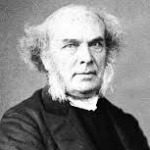Quotes about Bible-Purpose
[The Bible] will lead us into all truth. It will deliver us from the fermenting errors of the day. It will save us from the intellectual dreams of a vain philosophy, from the morally corrupted taste of a sensational literature, from the superficially attractive novelties of spiritual mysticism, from the pretentious sentimentalisms of men who soar above all creeds and abhor the name of “law,” from Broad Church-ism, and High Church-ism, and no Church-ism. It will lead us into light and love, into liberty and unity, imparting strength and gladness.
It is the very drift and design of the whole Scripture, to bring souls first to an acquaintance with Christ, and then to an acceptance of Christ, and then to build them in a sweet assurance of their actual interest in Christ.
A Puritan Golden Treasury, compiled by I.D.E. Thomas, by permission of Banner of Truth, Carlisle, PA. 2000, p. 24
God will not be known if He does not speak, and we cannot know Him if He has not spoken a word that we can rely on. God must reveal Himself. That’s the point of the Bible. Because of our own sins, we could never know God otherwise. Either He speaks or we are forever lost in the darkness of our own speculations.
Nine Marks of a Healthy Church, Crossway, 2000, p. 35. Get this book!
On these pages you will find the living Christ, and you will see Him more fully and more clearly than if He stood before you, before your very eyes.
There is a center to the Bible and its message of grace. It is found in Jesus Christ crucified and resurrected. Grace must therefore be preached in a way that is centered and focused on Jesus Christ Himself, never offering the benefits of the gospel without the Benefactor Himself.
The Scriptures were written, not to make us astronomers, but to make us saints.
The Bible is not just a collection of inspired books written by various prophets and apostles, but that it’s a single story, a coherent narrative of the redemptive acts of God. The single story has God as its author, its primary actor, and its center, and the climax of this story is the glory of God in salvation through judgment.
Natural minds can see the world and conclude that there is a God. By human reason it can only be known that He exists, not who He is. To the natural reason He is the “unknown” and the unknowable God. He can only be truly known by supernatural theology, the revelation of Scripture.
Only the person who understands that the cross is the center of all human history can understand the Old Testament. Through the lens of the gospel, the Bible truly becomes one book telling one story: the story of sinful man, a holy God, and His plan of salvation through the substitution of Himself for His people.
The Cross Centered Life, 2002, Used by permission of Sovereign Grace Ministries, p. 76-77.
Many Christians now speak of the Bible’s metanarrative – its all-encompassing story line. In the Bible, God has revealed the story that underlies every true story, and in which every other true story finds its meaning. That is the story of God’s determination to glorify Himself by saving sinners through the atonement accomplished by His own Son. As Christ Himself made clear, every word of Scripture serves to tell this story.
The Scriptures were not given to increase our knowledge but to change our lives.
Through His Word, our Father speaks to us, encourages us, comforts us, instructs us, humbles us, and reproves us.
The Autobiography of George Muller, 1984, p. 140. All quotations taken from books published by Whitaker House are used with permission of the publisher. Whitaker House books are available at Christian bookstores everywhere. Get this book!
The central issue about the Bible is whether we live it (John Alexander).
The Bible was given to bear witness to one God, Creator and Sustainer of the universe, through Christ, Redeemer of sinful man. It presents one continuous story – that of human redemption.
The Bible is not meant merely to inform, but to transform.
Christ is its grand subject, our good its design, and the glory of God its end.
It [the Bible] should fill the memory, rule the heart, and guide the feet.
[The Bible’s] emphasis is on God, and what God is doing. It is not first of all on man and what he ought to do. A false emphasis perverts the truth. In theory we may believe that the Bible is about God while, because of our emphasis, we deny it in practice.
Christian: Take Heart! By Permission of the Banner of Truth Trust, Carlisle, PA. 1987, p. 102.













